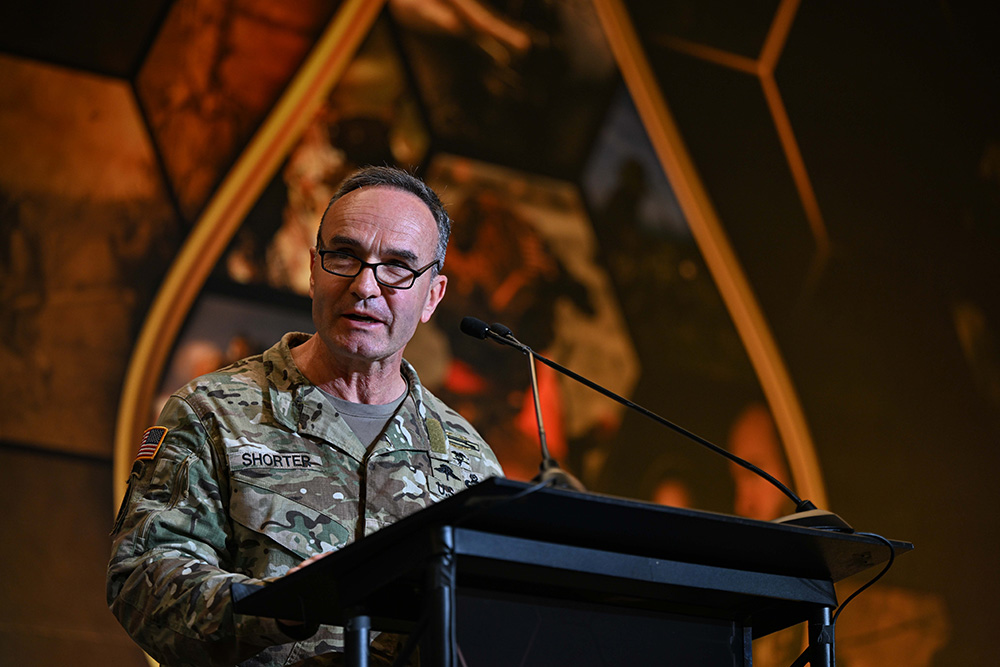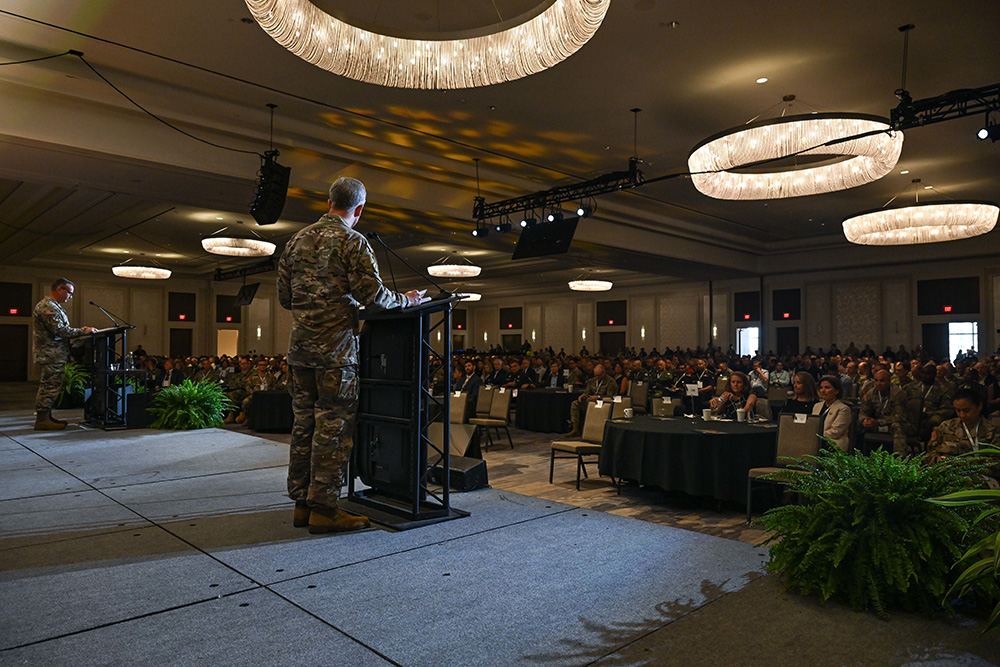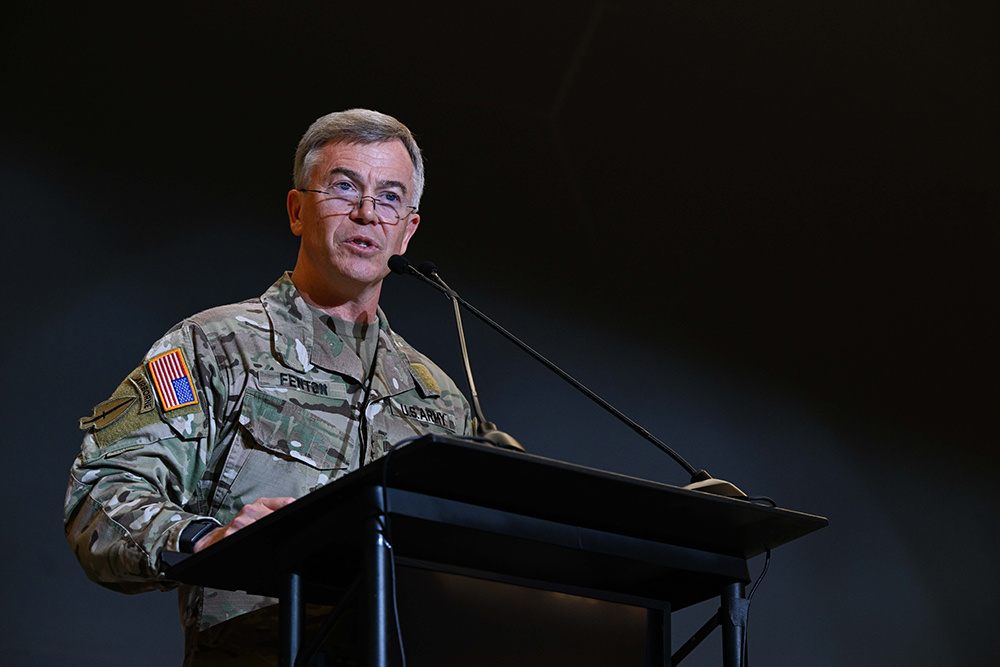The role of special operations forces in global conflicts has steadily increased amid what the U.S. Special Operations Command’s top leader called the most complex security environment the United States has faced in decades.
Army Gen. Bryan P. Fenton, Socom commander, discussed the current and future role of special operations forces while delivering keynote remarks on Tuesday at the start of Special Operations Forces Week 2025 in Tampa, Florida.
“For the most pressing problems facing the nation, senior leaders are turning to SOF [and] it’s all against the backdrop of the most complex, asymmetric and hybrid threat security environment we’ve seen in 38 years of service,” Fenton said.
He was joined by Socom’s senior enlisted leader, Army Command Sgt. Maj. Shane Shorter.
Fenton said today’s threat environment includes adversaries operating in isolation, multiple threats converging, and a rapid pace of technological change that hasn’t been seen in the past.
“Special operations forces are the asymmetric strategic option for this volatile world; it’s the theme of this conference for that very reason,” he said, adding that SOF is a “scalpel” in “a world demanding precision.”
Shorter said adversaries such as Iran, China, Russia, North Korea and various terrorist groups have begun merging efforts in what Socom labels a “fusion of foes.”

Army Sgt. Maj. Shane Shorter, command senior enlisted leader of U.S. Special Operations Command, provides a keynote speech during the kickoff of Special Operations Forces Week in Tampa Bay, Fla., May 6, 2025. © Air Force Tech. Sgt. Marleah Miller
“Threats aren’t just coming together through convergence, they’re collaborating,” he said.
To counter this fusion, Fenton said SOF must operate asymmetrically — that is, through “unconventional,” “irregular” [and] “asynchronous” efforts — across its three primary missions: crisis response, counterterrorism and deterrence. These efforts also include ongoing training and transformation to ensure future success.
“I think everyone in this room knows that we don’t train and get it right once. … We do it over and over and over again until we can never, ever get it wrong,” he said.
Fenton added that SOF’s global network of partners provides a critical advantage. For instance, special operations personnel representing 60 countries attended SOF Week 2025. He also noted that the crisis response mission demand for SOF has gone up 200% in the past three and a half years, which he called unprecedented.
Additionally, Shorter said the demand for SOF as a deterrent has increased globally by 35%.
“It’s not by luck that we’ve been able to meet this demand — it’s capability, it’s training to standard, it’s dedication and it’s harnessing the power of partnerships,” Shorter said.

Army Gen. Bryan Fenton, commander of U.S. Special Operations Command, right, and Sgt. Maj. Shane Shorter, command senior enlisted leader of Socom, provide a keynote speech during the kickoff of Special Operations Forces Week in Tampa Bay, Fla., May 6, 2025. © Air Force Tech. Sgt. Marleah Miller
Looking ahead, Fenton said SOF must continue doing what works while adapting quickly to changing threats.
“We’re going to keep doing what we do best, and we know we [have to] transform to meet this changing and complex environment. We [have to] do it at speed and we [have to] do it to dominate,” Fenton said.
He emphasized that SOF partnerships will continue to play a key role in building interoperability and shaping the environment before conflict even begins.
So, while adversaries have begun merging efforts and becoming a “fusion of foes,” Fenton said he is relying on the strength of another fusion — the personnel attending SOF Week 2025.
“The fusion of what we have in this room — interagency, industry, academia, practitioners and policymakers — is tied together and galvanized towards irregular and asymmetric options,” he said, adding, “We’re the scalpel, but when the time comes, we can bring the hammer too.”






